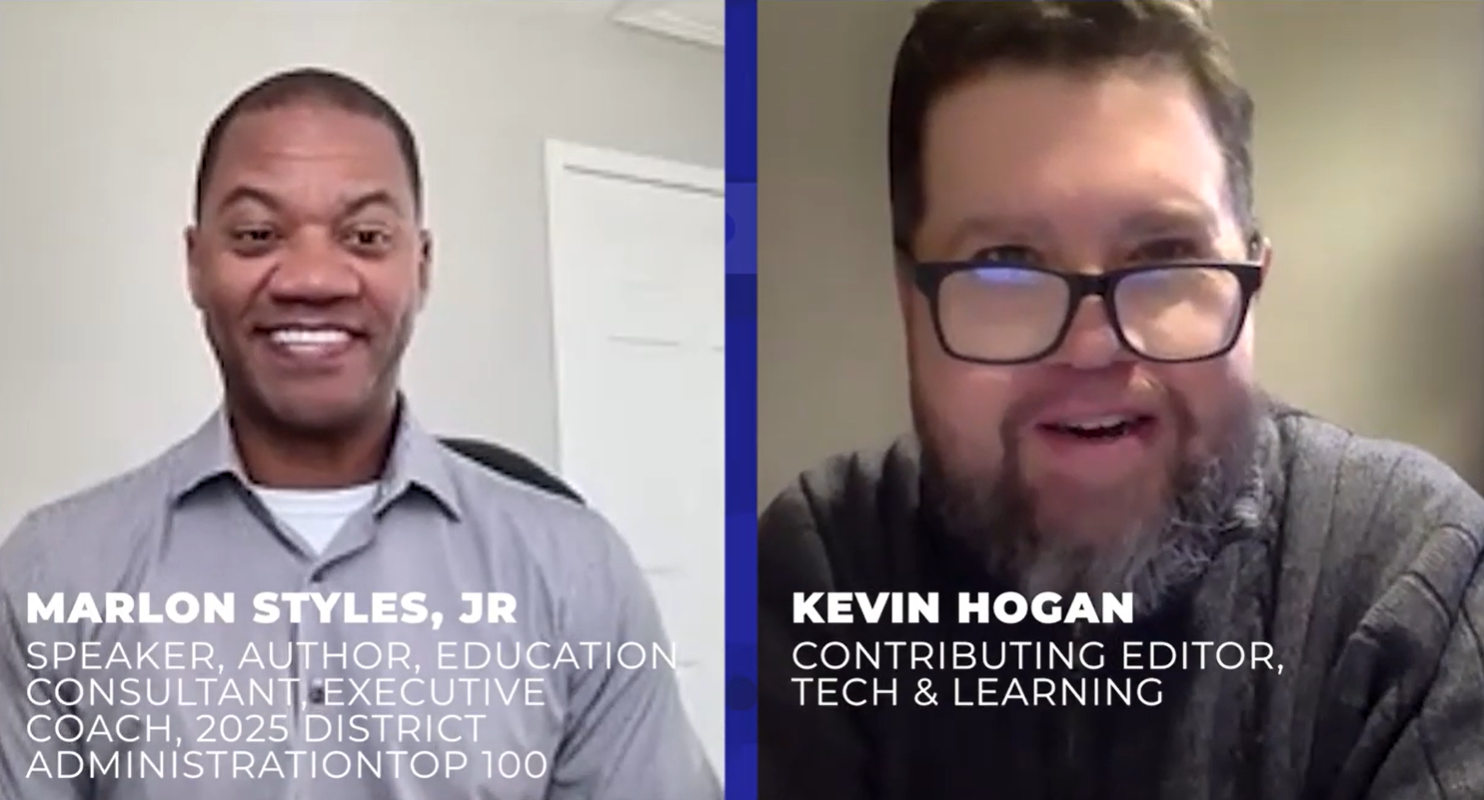District Leaders Navigate Student Data Privacy Laws to Champion for Students

Tools and ideas to transform education. Sign up below.
You are now subscribed
Your newsletter sign-up was successful
The second in the Super-Connected: Empowering Superintendents & District Leaders CoSN and edWeb.net series, “Student Data Privacy: A Priority and Essential Commitment” took place on October 8, 2018. Moderated by Ann McMullan, Project Director, CoSN Empowered Superintendent Program, this webinar spotlighted the critical guidelines developed by CoSN for ensuring student data privacy in school districts. Ann McMullan said that “technology has such a big role in education today. We can't just go and ask the IT guy. We all need to talk the talk”
The guest panelists in this webinar can certainly talk the talk and walk the walk. These student data privacy champions included Dr. Charles Dumais, Superintendent/Executive Director Cooperative Educational Services Fairfield County CT, Dr. Quinn Kellis Superintendent Dysart Unified School District. Surprise AZ, and Linnette Attai, Project Director, CoSN Privacy Initiative and Trusted Learning Environment Program and President and Founder of PlayWell, LLC
The webinar launched with Linnette Attai explaining the four federal student data privacy regulations; FERPA, PPRA, COPPA AND GDPR. She highlighted one of the lesser known federal regulations, Protection of Pupil Rights Act ( PPRA) that is concerned with student surveys and assessments that ask sensitive information or as Linnette described it as the “sex, drugs, and rock and roll” of student data. Ann McMullan stressed that “it is incumbent for superintendents and state leaders to stay on top of these laws as they are constantly evolving and not set in stone.”
Steering the ship through the sea of state and federal student data privacy laws
When the panelists were asked the question of how to navigate state/federal data privacy laws, Dr. Kellis described it well. “It's almost like being in a foreign country. Whenever you enter someone else's territory and need to be compliant to someones else’s laws, you have to be familiar with those laws before you start navigating their streets and their lands.” Dr. Kellis, also, pointed out a recently passed Arizona PPRA type law that applies penalties directly to the person, not the district, who conducts or performs the violation. Dr. Dumais explained how aggressive Connecticut has been with student data privacy laws and how the timeline gave their 160 individual district little time to become compliant. The state’s Commission For Educational Technology has worked hard to give school district the tools and resources they need to meet the requirements. However, some of the vendors are large and hard to work with and some of the vendors are small and don’t have the legal resources to be able to comply with the regulations.
How much information is too much information
Tools and ideas to transform education. Sign up below.
Both Dr. Dumais and Dr. Kellis are concerned about over communicating with parents when it comes to student data privacy. Dr. Kellis talked about how it can “create a culture of fear amongst parents” and the challenge for school districts is to be transparent and informative while at the same time not overwhelming stakeholders. All the panelists agreed with Dr. Dumais’s statement that it is ”difficult to keep up with all the changes to student data privacy regulations and that at times it feels like we are pulling technology and resources away from teachers just to ensure compliance.”
Instruction should always proceed the technology
Dr. Dumais stressed that superintendents not only needs to be aware of the student data privacy laws but must also be aware of how implementation in the district is going to best support instruction. An example of success in Connecticut Public Schools system was moving to a single learning management system. “It not only ensured compliance with student data privacy regulations but it made the state stronger by allowed us (Connecticut) to be better at effective using student data to drive instruction.” Dr. Kellis echoed the sentiment around instruction and technology when he talked about how Dysart Unified School District has high expectations and supports innovation in classrooms. “We want the teachers to be innovative and out there looking for solutions to affect their teaching and we want our students go beyond their classroom walls and have a holistic experience. However, this innovative approach to education comes with a price as it falls on the district to protect our students.”
All the “ly” words working together
Ann McMullan heightened our awareness when she announced that “everyone has to learn how to use student data securely, effectively, legally, and ethically ensuring that all those ly words work together.” The Dysart Unified School District, Dr. Kellis explained, focuses on employee online training modules that includes a module on student data privacy. Any new technology rolled out in the district includes student data privacy training for all employees. Dr. Dumais explained how “going back thirty years, our staff (Connecticut) training of FERPA was limited to a small population, comprised mostly of special education teachers and administrators. Now we do a lot of training with attorneys on helping all our staff understand the implications of the state and federal student data privacy regulations.”
Listen up future superintendents
Both Dr. Kellis’s and Dr. Dumais’s final words on student data privacy spoke to future superintends and district leaders. Dr. Kellis recommended that “in order to be an effective superintendent and make a difference, you have to have a core belief that students come first and that their safety is important. It’s an easy issue to delegate or set aside because it is something that is not right in your face like a threat or fire evacuation. Everything you do is for the students and you cannot minimize student data privacy.” Dr. Dumais conveyed that “the best superintendents are the ones who are addressing the issue in districts and where the leadership who are pushing it forward.This is not a single person solution and only through a systematic solution will we find a way to protect students.”
For more information, check out the CoSN Empowering Superintendent Toolkit and other webinars in the Super-Connected: Empowering Superintendents & District Leaders series.
Eileen Belastock (@EileenBelastock) is the director of academic technology for Mount Greylock RSD in Williamstown, MA.
